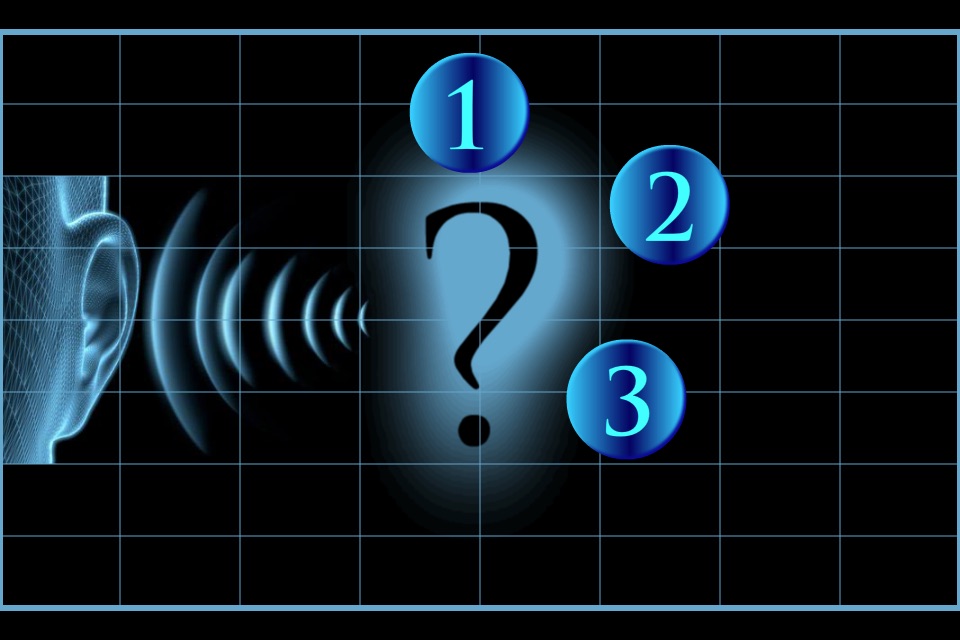
This is the free version.
This app has been designed to learn in a practical and easy way the basics of EAR TRAINING. You don’t need to know how to read music. You don’t need to know any music theory. The exercises in this app are mainly oriented on working with the auditive aspects. Anyone can use this app.
The blue buttons lead to the LESSONS:
- On the exercises contained in lessons 1 to 5 you will listen three sounds, one after the other, and you will see graphic animations representing what is happening with those sounds. This section helps on recognizing when a sound goes up or down.
- On lessons 6 to 10, aside hearing higher or lower sounds you will listen sounds of different duration and you will see graphic animations of them. On lessons 8, 9 and 10 silences are included. This section helps on recognizing when a sound is higher or lower, when a sound is longer or shorter than others and when a silence occurs.
- On lessons 11 to 15 the exercises will help you to identify some of the main chords used in music. A chord happens when several sounds are played together = SIMULTANEOUSLY. To make things easier, on lessons 11 and 13 you will hear first the sounds in sequence (one after the other) and then simultaneously as a chord. On lessons 12, 14 and 15 you will only listen the chords. The chords are represented with the Anglo-Saxon music notation system. For the purpose of this app we don’t need to explain this system. All you need to do is to relate the sonority of each chord with the letters and numbers that represent it.
The red buttons lead to the QUIZZES:
- Each Quiz corresponds to a Lesson and it’s used to let the student verify if he is able to apply what he is learning.
- On quizzes 1 to 5 you will listen a sequence of three sounds and you will see two graphic choices. You have to click on the right one.
- Quizzes 6 to 10 are similar to the previous ones (1 to 5) but there are more aspects involved: a) the sound goes up or down, b) the sound may be shorter or longer, c) there can be silences. There are two graphic choices. You have to click on the right one.
- On quizzes 11 to 15 you will listen the studied chords and you will see several choices expressed in the Anglo-Saxon music notation system. You have to click on the choice that corresponds to the chord that you heard.



